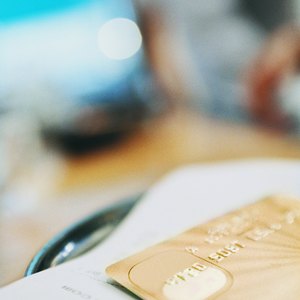
Because credit card debt may be deemed uncollectable as the result of a bankruptcy, it can be tempting to max out your cards and only file when the last one has reached its limit. However, doing so can ultimately be a very expensive proposition. You’ll likely be obligated to pay for luxury items purchased within three months of a bankruptcy filing even if you charged them.
Fraud Risk
Charging a purchase on your credit card becomes fraud if you never intended to pay for what you bought. Such debts aren’t dischargeable in bankruptcy. Of course, proving intent can be tricky, and in bankruptcy court such matters often come down to timing. In general, charges that occur within 90 days of bankruptcy, or cash advances taken out within 70 days of a filing, may not be discharged if challenged by the creditor.
Burden of Proof
Purchases of luxury items within 90 days of bankruptcy is presumed to be fraudulent, and the burden of proof is on you to convince a judge otherwise. Moreover, bankruptcy law defines “luxury items” broadly. Anything not considered reasonably necessary to support or maintain a debtor or a dependent is a luxury item. Sometimes, this designation is tricky. A used car that’s required to get you to your job might be allowable; the down payment on a luxury vehicle that you charged on your card likely is not. The 90-day rule isn’t absolute. Creditors can ask that older purchases also be considered fraudulent, though in that case the burden is on them to prove you knew bankruptcy was imminent and never intended to pay then back.
Other Expenses
Though basic living expenses generally aren't considered fraudulent, creditors can still try to convince a judge you never intended to pay for what you bought. Even charges for needed items like food and gas might be looked at closely if made close to your bankruptcy filing. If you sense you’re going to have to declare sooner rather than later, you may be better off skipping the minimum payments on your cards and using that money to buy necessities rather than charging them.
State Your Case
Regardless of how close to your bankruptcy filing items were charged, you have a chance to argue that those debts weren’t made with fraudulent intent. If you file bankruptcy right after a divorce or a major medical expense, for example, a judge may accept your argument that it was these unanticipated expenses that pushed you over the brink and that you did intend to pay for the other purchases when you made them. A judge would consider the nature of those expenses in making her decision. A hospital stay after a car accident, for example, is a necessity tough to predict. However, elective surgery would likely be considered a luxury.
Cash Advances
Cash advances for consumer purposes are not dischargeable if they totaled more than $925 to any one creditor within 70 days of bankruptcy. It doesn’t matter what these advances were used for, as long as the intent wasn’t to run a business. You’re better off charging groceries, which would more likely be seen as an essential purchase, than taking out an advance and using it to buy food.
Watch Your Payments
As if the bankruptcy process isn’t complicated enough, even payments to your credit card company within 90 days of bankruptcy may come under scrutiny. Payments to any outside creditors that total more than $600 within 90 days of bankruptcy must be disclosed when you file. The intent is to be sure that all creditors are treated equally, so a notable lack of payments may create scrutiny -- as can a situation where you paid off one credit card almost entirely and ignored all the others.
References
- ShonCock Law: Bankruptcy Mythbusters
- Nolo.com: Recent Luxury Debts and Cash Advances -- Can You Get Rid of Them in Bankruptcy?
- U.S. Courts. "Bankruptcy Basics," Pages 9–10. Accessed Aug. 1, 2020.
- U.S. Courts. "Bankruptcy Basics." Accessed Aug. 1, 2020.
- Federal Trade Commission. "Filing for Bankruptcy: What to Know." Accessed Aug. 1, 2020.
- U.S. Courts. "Bankruptcy Basics," Page 5. Accessed Aug 1, 2020.
- United States Department of Justice. "Private Trustee Information." Accessed August 1, 2020.
- HG.org. "What Does a Bankruptcy Trustee Do?" Accessed Aug. 1, 2020.
- Experian. "How to Remove Bankruptcy From Credit Report." Accessed Aug.1, 2020.
- Cornell Law School Legal Information Institute. "Bankruptcy Fraud." Accessed Aug. 1, 2020.

